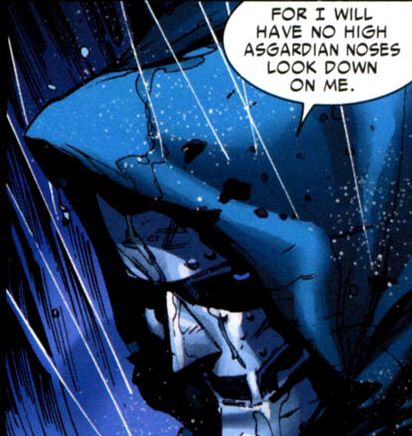
Cok umurlarindaydi ya sanki, VACLAV HAVEL, KJELL MAGNE BONDEVIK ve ELIE WIESEL usenmemisler, Kuzey Kore halkinin cektigi acilar ve izdiraplar uzerine bir yazi kaleme almislar New York Times'da. Havel'i taniyorsunuz, eski Cek Cumhuriyeti Reisicumhuru, Bondevik Norvec eski basbakani. Wiesel ise taninmis bir profesor, genellikle insan haklari konusu uzerinde arastirmalar yapiyor. Artik yeter, biz dayanamiyoruz, ne olacak bu Korelilerin hali demisler, asagidaki yaziyi dokturmusler.
Linki bu; ama bu adamlar bazen subscription filan isteyebiliyor diye yaziyi da kopyaliyorum;
" WHILE the focus in recent weeks has been on North Korea’s nuclear test, we shouldn’t lose sight of the fact that the government there is also responsible for one of the most egregious human-rights and humanitarian disasters in the world today.
For more than a decade, many in the international community have argued that to focus on the suffering of the North Korean people would risk driving the country away from discussions over its nuclear program.
But with his recent actions, North Korea’s leader, Kim Jong-il, has shown that this approach neither stopped the development of his nuclear program nor helped North Koreans. It is time, therefore, for a renewed international effort to ameliorate the crisis facing the country’s citizens.
And with the unanimous adoption by the United Nations Security Council of the doctrine that each state has a responsibility to protect its own citizens from the most egregious of human-rights abuses, a new instrument for diplomacy has emerged.
States will retain sovereignty over their own territory, but if they should fail to protect their own citizens from severe human-rights abuses, the international community now has an obligation to intervene through regional bodies and the United Nations, up to and including the Security Council.
It is in this context that, working with the law firm DLA Piper and the United States Committee for Human Rights in North Korea, we commissioned a report on the failure of the North Korean government to exercise its responsibility to protect its own people. The evidence and analysis in this report are deeply disturbing. Indeed, it is clear that North Korea is actively committing crimes against humanity — against its own people.
North Korea allowed perhaps one million — and possibly many more — of its own citizens to die during the famine in the 1990’s. This was caused in part by the government’s decision to reduce food purchases as international assistance increased so that it could divert resources to its military and nuclear program.
Hunger and starvation remain a persistent problem today, with more than 37 percent of North Korean children chronically malnourished. And yet North Korea has requested less food assistance from the World Food Program and refuses to let the program monitor food distribution in some 42 of 203 counties in the country.
As a result of the cuts in food aid, the program has said that millions of North Koreans will face real hardship this winter and many aid groups have warned of another famine.
Furthermore, North Korea holds as many as 200,000 people in its political prisons. Not only are real or imagined dissenters imprisoned, but so are their relatives, including the elderly and children, under a guilt-by-association system instituted by North Korea’s founder, Kim Il-sung.
Prisoners in the gulag are provided starvation-level rations, forced to work long days under brutal conditions, and many face torture or execution for trivial offenses. It is estimated that more than 400,000 have died in the North Korean gulag over 30 years.
The few attempts by the international community to engage with North Korea on human rights and humanitarian concerns have come up short. Resolutions adopted by the General Assembly and the Commission on Human Rights have been repudiated by North Korean representatives and then ignored.
In addition, North Korea refuses to recognize the legitimacy of the United Nations special rapporteur on human rights in North Korea and has denied his numerous requests for access to the country.
Kim Jong-il has proven that the international community’s restraint in openly discussing North Korea’s treatment of its own people did not yield compromise on the nuclear issue. It merely allowed him to decouple the two issues.
Now that Kim Jong-il’s nuclear weapons test has attracted the attention and condemnation of the world, it is imperative to seize this opportunity and once again engage with Pyongyang on human rights and humanitarian concerns.
Our report recommends that, as a first step, the Council should adopt a non-punitive resolution urging open access to North Korea for humanitarian relief, the release of political prisoners, access for the special rapporteur and engagement by the United Nations.
We also urge the incoming secretary-general, Ban Ki-Moon, to make his first official action a briefing of the Security Council on this dire situation.
Protecting the people of North Korea requires nothing less."
Aslan parcalari, ozetle Kuzey Kore yonetiminin halkin cektigi tarifsiz sikintilar pahasina Nukleer programina devam etmesini bir insanlik sucu olarak ilan ediyor, Cezaevlerinde siyasi tutuklu olarak olen yuzbinlerce insanin , bir o kadar tutuklunun ve ac yasamaya mahkum edilmis cocuk yastaki calisanlarin haklarinin Uluslararasi toplum tarafindan savunulmasi icin yardim feryatlari atiyorlar.
Ulan, bu adam otuz senedir bu ulkenin basinda, bu milletin ezilmekten zerre dermani kalmadi, simdi mi geliyor akliniz basiniza ? Simdi mi mudahale cigliklari atiyorsunuz ? Amerika'nin dunyanin yuce cikarlarini korumasi icin bu uc isim tarafindan goreve cagirilmasini gormemiz, hic de olumlu gelismelere gebe olmayan gunlere dogru ilerledigimizi hissettiriyor.

Hiç yorum yok:
Yorum Gönder